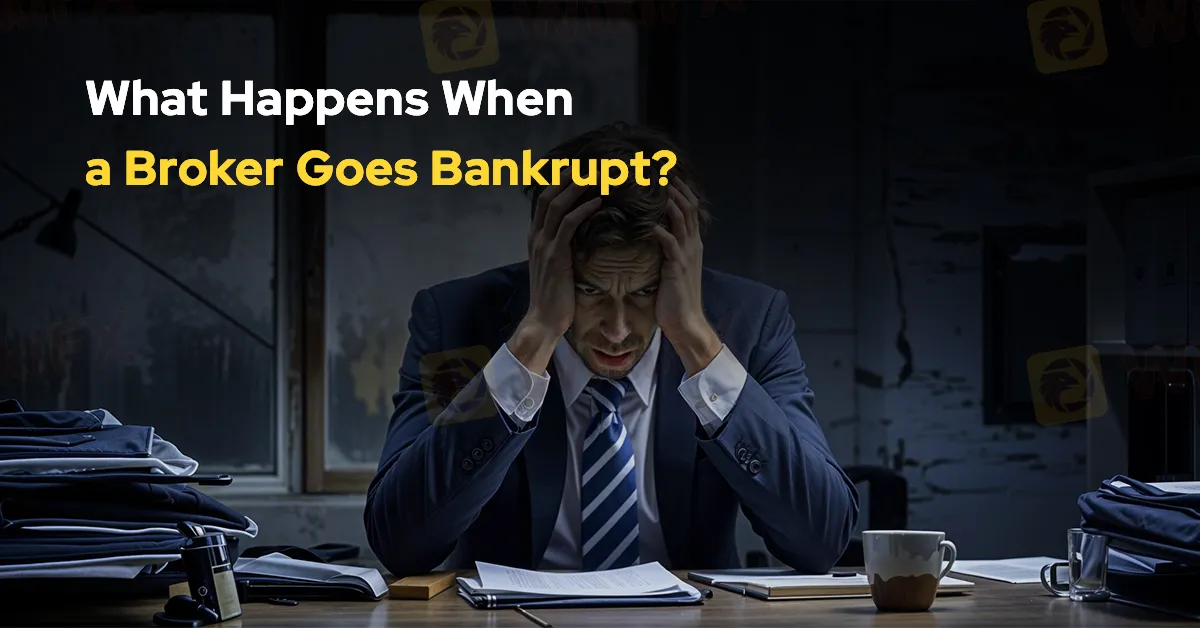What Happens When a Broker Goes Bankrupt?
Abstract:Many trust brokers to hold their funds securely and facilitate their trades. However, when a broker collapses, the situation can become uncertain. Knowing what happens in such cases can help traders prepare and reduce potential losses.

The thought of a broker going bankrupt can be terrifying for traders. Many trust brokers to hold their funds securely and facilitate their trades. However, when a broker collapses, the situation can become uncertain. Knowing what happens in such cases can help traders prepare and reduce potential losses.
When a broker declares bankruptcy, the first concern is client funds. In many countries, brokers must keep client funds in segregated accounts. These accounts are separate from the broker‘s operational funds. This requirement ensures that client money is protected if the broker’s finances fail. However, not all brokers follow this rule, especially those operating in poorly regulated regions.
Regulators play a key role in managing broker insolvencies. In well-regulated markets, authorities step in to oversee the process. For example, in the UK, the Financial Conduct Authority (FCA) ensures that client funds are returned as a priority. Compensation schemes like the Financial Services Compensation Scheme (FSCS) also exist to protect clients. Under the FSCS, traders may receive compensation up to a certain limit if their broker fails.
In poorly regulated markets, the situation is more complex. Traders may struggle to recover funds. Brokers in these regions often lack safeguards like segregated accounts or compensation schemes. Without proper regulation, clients are left exposed to greater risks.

Another factor is whether the broker offers negative balance protection. If a trader‘s account balance goes negative during a broker’s financial trouble, it can complicate the claims process. Brokers offering this protection absorb client losses, but those that do not may hold traders responsible for debts.
The bankruptcy process can be lengthy. Administrators are appointed to assess the broker‘s finances and liabilities. They prioritise claims based on local laws and regulations. Traders must file claims to recover their funds. Depending on the broker’s financial health, recovery can take months or even years.
Fraudulent brokers present additional challenges. Some brokers declare bankruptcy to avoid paying clients. These cases often involve legal battles. Authorities must determine whether the broker acted in bad faith. Clients of fraudulent brokers may face greater difficulty in recovering their money.
To reduce risks, traders should choose brokers with strong regulatory oversight. Brokers regulated by authorities like the FCA or the Australian Securities and Investments Commission (ASIC) provide greater security. Always check if a broker holds client funds in segregated accounts. Researching a brokers financial stability is also important.
Broker bankruptcy is rare, but it is not impossible. Traders must remain vigilant and informed to safeguard their investments. Download the free WikiFX mobile application to conduct due diligence effortlessly.

Read more

CySEC reaches €20k settlement with ZFN EUROPE
According to report, the Cyprus Securities and Exchange Commission (CySEC) announced today that it has entered into a settlement agreement with ZFN EUROPE Ltd for the amount of €20,000. This settlement resolves a regulatory inquiry into ZFN Europe’s compliance with Cyprus’s Investment Services and Activities and Regulated Markets Law of 2017, as amended.

PrimeXBT Expands Trading Options with Stock CFDs on MT5
PrimeXBT launches stock CFDs on MetaTrader 5, offering shares of major U.S. companies with crypto or USD margin for enhanced multi-asset trading.

Pi Network: Scam Allegations Spark Heated Debate
A whistleblower report has surfaced, casting doubt on the legitimacy of Pi Network, alleging psychological manipulation, opaque operations, and potential financial exploitation. What is your take on this?

How is AI Transforming Scams and Making Them Harder to Detect?
AI is revolutionizing scams, making them harder to detect. Learn how AI-powered scams work and expert tips to protect yourself from falling victim.
WikiFX Broker
Latest News
Love, Investment & Lies: Online Date Turned into a RM103,000 Scam
Broker Took 10% of User's Profits – New Way to Swindle You? Beware!
Pi Network: Scam Allegations Spark Heated Debate
Broker Comparsion: FXTM vs AvaTrade
Account Deleted, Funds Gone: A New Broker Tactic to Beware Of?
Broker’s Promise Turns to Loss – Funds Disappear, No Compensation!
StoneX Subsidiary, Gain Global Markets Bermuda, Penalized for Trading Misconduct
El Salvador and U.S. Launch Cross-Border Crypto Regulatory Sandbox
The Instagram Promise That Stole RM33,000
Coinbase Launches Bitcoin Yield Fund for Institutional Investors
Rate Calc
